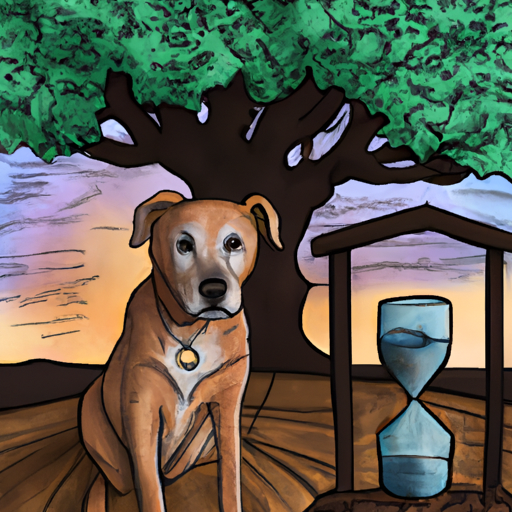Understanding The Lifespan of Dogs
You’ve probably heard that old saying, “One human year equals seven dog years.” It’s a simple way to calculate the relative age of your canine companion. But in truth, the lifespan of a dog depends on a range of factors. As a caregiver, it’s essential to understand that dogs’ lifespans are influenced by their breed, size, and overall health.
- Size: Generally, small breed dogs live longer than large breed dogs. For example, a Chihuahua can live up to 17 years, while a Great Dane might only reach seven or eight.
- Breed: Genetics play a significant role in a dog’s lifespan. Some breeds are predisposed to certain health conditions that can shorten their lives.
- Overall Health: Dogs that are well-cared for, with a balanced diet, regular exercise, and regular vet check-ups, generally live longer.
How to Prolong Your Dog’s Life
No one wants to think about bidding farewell to their furry friend, but the reality is that dogs don’t live as long as humans. However, there are steps you can take to ensure your dog lives a long, healthy, and happy life.
- Regular Vet Check-ups: Regular veterinary care is crucial to catch potential health issues early.
- Balanced Diet: A balanced diet can help maintain a healthy weight and prevent health issues like diabetes and heart disease.
- Regular Exercise: Regular physical activity can keep your dog’s body fit and mind sharp.
Dealing with the Inevitable
Let’s face it – even with the best care, dogs will eventually age and face health problems. It’s a hard truth to swallow, but dealing with it head-on can make the process less painful for both you and your pet.
- Recognize the Signs: Dogs can’t tell us when they’re feeling unwell, so it’s up to us to look out for signs of discomfort or illness.
- Provide Comfort: As dogs age, they may need more comfort and care. This could mean softer bedding, special diets, or even pain management.
- Know When to Say Goodbye: The hardest part of being a pet caregiver is knowing when to let go. It’s a personal decision, but always consider the quality of life of your pet.
Remembering Your Dog
When your dog does pass, remember that it’s okay to grieve. Dogs are not just pets; they’re part of the family. It’s natural to feel a profound sense of loss. Here are a few ways to honor your dog’s memory:
- Create a memory box with their favorite toys and photos.
- Plant a tree or flower in your garden as a living tribute.
- Donate to a local animal shelter in your dog’s name.
FAQ
Q: Why do small dogs live longer than large dogs?
A: Scientists believe it has to do with the way large dogs grow faster, which may lead to more cell damage and potential health issues.
Q: What is the average lifespan of a dog?
A: It varies greatly by breed and size, but on average, dogs live between 10 and 13 years.
Q: Can a dog live 20 years?
A: While rare, some small breed dogs have been known to live into their early twenties.
Q: How can I tell if my dog is getting old?
A: Signs of aging in dogs include graying fur, decreased activity level, weight gain or loss, and changes in hearing or vision.
Q: What can I do to help my aging dog?
A: Regular vet visits, a balanced diet, exercise, and plenty of love and attention can help your dog age gracefully.



